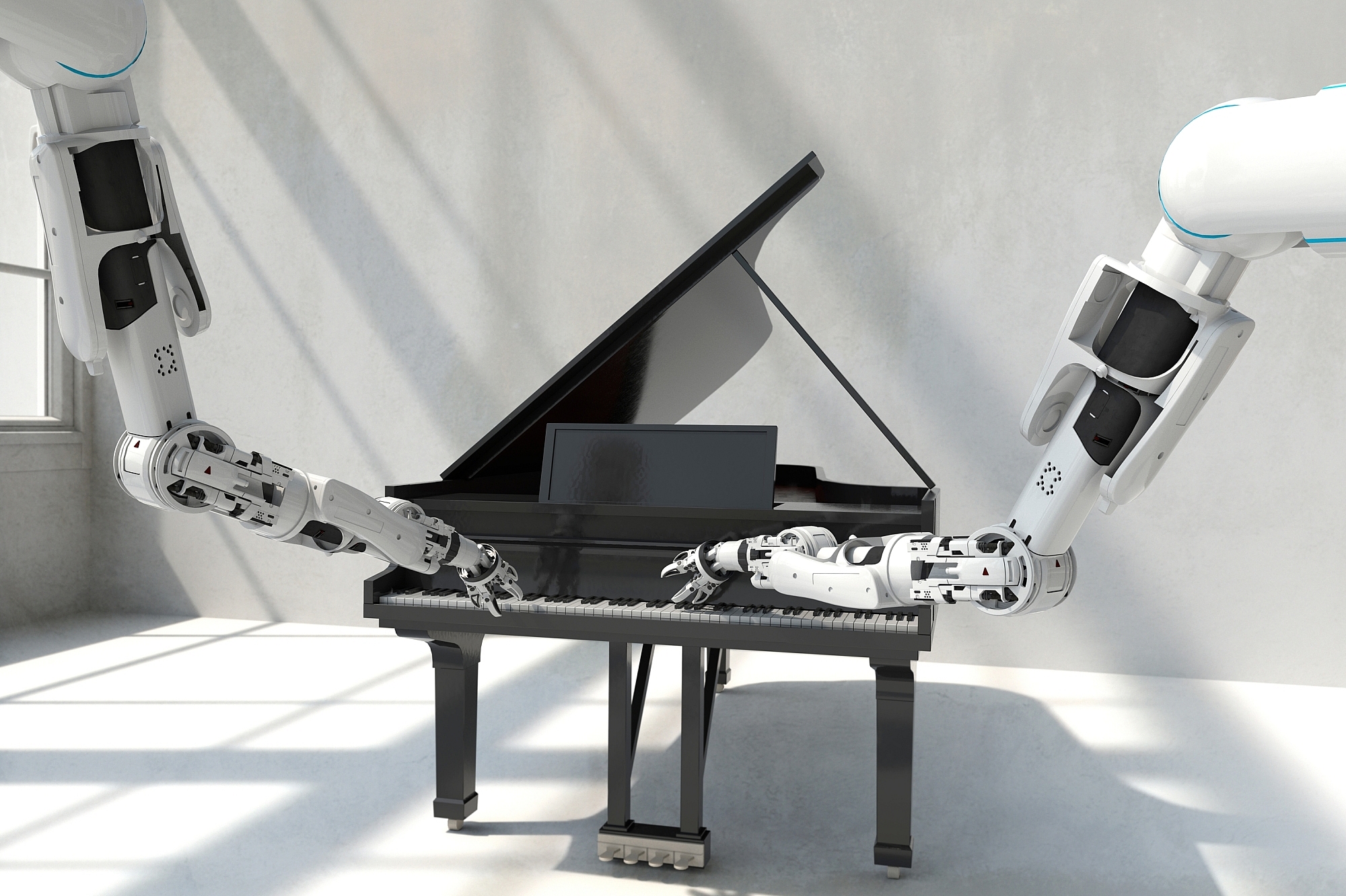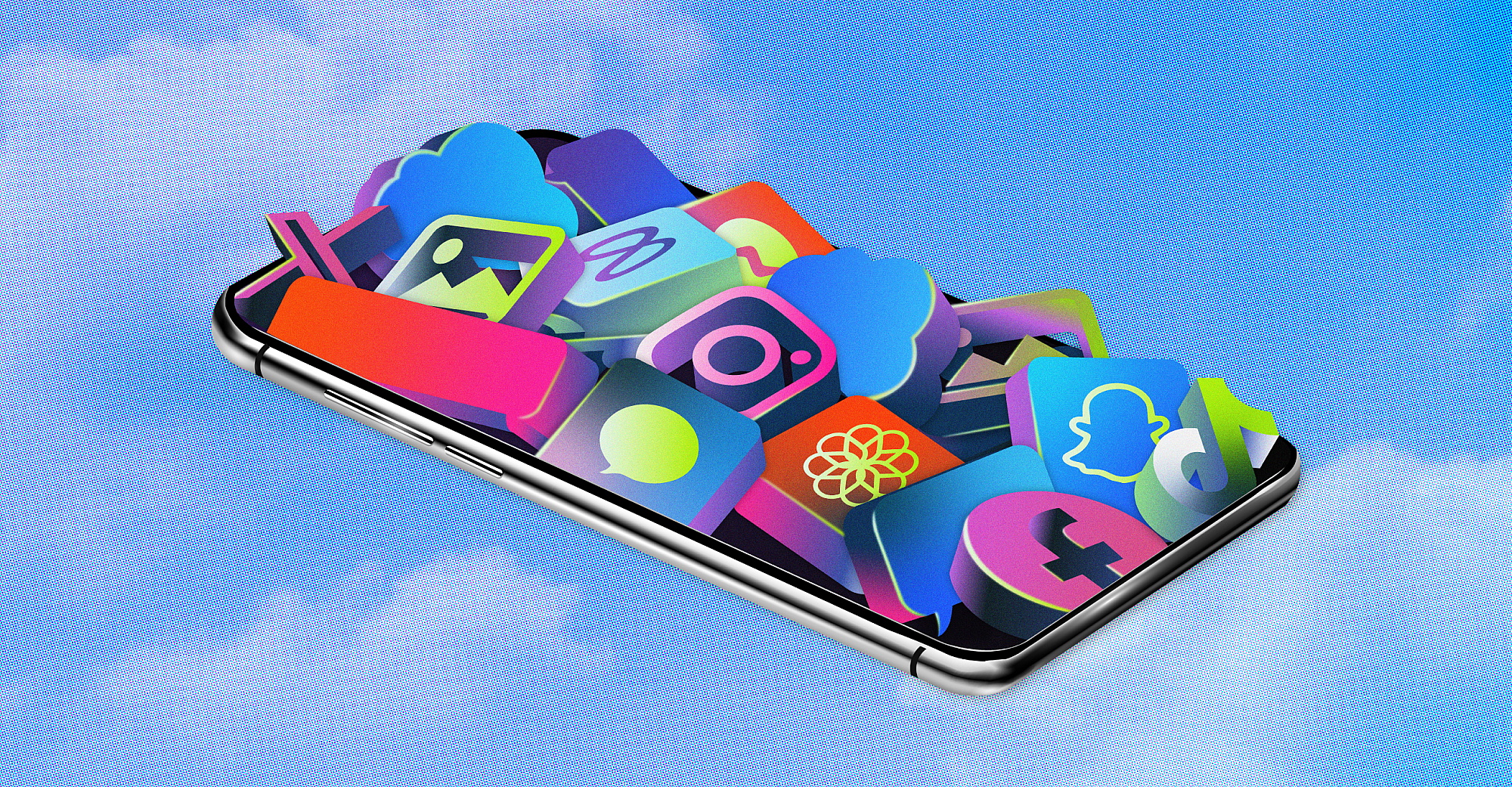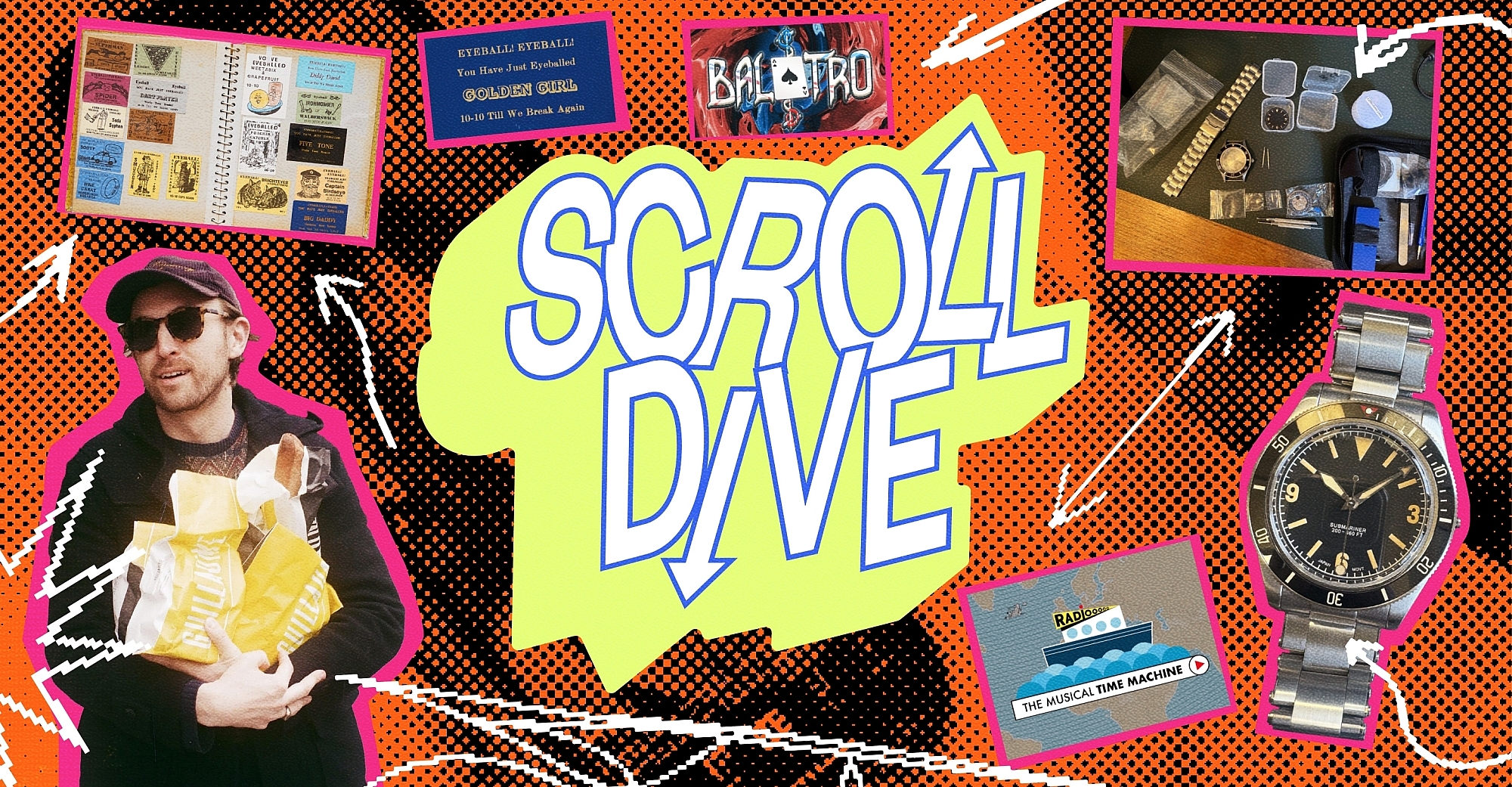“I came in with my ex like Selena to flex, aye / Bumpin’ Justin Bieber the fever ain’t left, aye,” raps a very realistic-sounding Drake on a song titled “Heart On My Sleeve,” along with an AI feature from The Weeknd. The AI-generated song recently blew up across social media and sparked a larger discussion about the use of artificial intelligence in pop culture and its effect on industries.
In the last few months since tools like ChatGPT, Google’s Bard and image generator Midjourney became more widely available, the presence of AI-generated content has skyrocketed on our feeds. From songs composed entirely by AI, like “Heart On My Sleeve,” to companies using AI for marketing content such as creative house Disco Cubes, it’s opened a gate to what seemed possible only in a sci-fi movie.
AI Drake + The Weeknd banger “heart on my sleeve” at over 250k streams on Spotify already pic.twitter.com/DcOSFsAXPz
— Jenny AI (@jenny____ai) April 16, 2023
In music, record labels like Universal Music Group have put requests out to streaming services to prevent AI services from imitating its artists—and Spotify is cracking down. On the other hand, electro-pop musician Grimes has approved AI-usage of her voice for tracks as long as she’s correctly compensated, which opens up the possibility of artists and AI going hand in hand.
With AI creations prompting re-evaluations of its use in music, fashion and even political advertising, let’s dive into a breakdown of 10 creations by AI that have sparked excitement across our feeds
1. Spotify’s Personalized AI DJ
Move over self-proclaimed playlist curators, there’s an AI taking over our queues. In February, Spotify launched their personalized AI DJ feature, which sorts through users’ music and listening habits with a mixture of the platform’s personalization technology and generative AI, delivering a stream of songs picked for individual preferences.. Though still in beta, Spotify claims that DJ “knows your taste so well that it can choose what to play for you.” The roll out of this feature feels like a natural progression for the platform, as 35% of adults claim to use streaming service algorithms to discover new music. Not feeling your AI DJ’s setlist? Have no fear, you can change the vibe with just a touch of a button. Will AI generated setlists be the future of music curation? Only time can tell, but in the meantime, you might want to make sure your DJ friends are okay. —Izzi Sneider
2. AI Will Smith eating Spaghetti
"Will Smith eating spaghetti" generated by Modelscope text2video
— Magus Wazir (@MagusWazir) March 28, 2023
credit: u/chaindrop from r/StableDiffusion pic.twitter.com/ER3hZC0lJN
A “demonic” AI-generated video of Will Smith inhaling a bowl of spaghetti surfaced in late March. Though it looked far from realistic—the hallucinatory nightmare fuel sees Smith’s mouth contorting around noodles as his eyes roll around their sockets—it did light up the internet. The video currently has 9M views on Twitter. It was proof positive that text-to-video AI tools have become something to contend with. This one in particular employed Modelscope, a tool trained to create videos from prompts using datasets from Shutterstock, LAION5B, ImageNet, and Webvid. Originally posted on the r/StableDiffusion subreddit by the user “chaindrop,” its lo-fi appearance is unlikely to fool anyone, but “Smithghetti” has been immortalized by digital artist Beeple, who turned it into another slightly less terrifying AI artwork. —Trey Taylor
3. Lil Yachty’s "Let’s Start Here" AI created album cover
Let’s start here. 1/27. LP. Thank You 4 Your Patience friends. pic.twitter.com/sI1PK0ws3z
— C.V Thomas (@lilyachty) January 17, 2023
Lil Yachty, the Atlanta rapper whose playful, often viral tracks cemented him as a bona fide star at 18, commenced his “non-rap” era with an AI-generated album cover. The art for Let’s Start Here centers on a crowd of seven, smiling in retro business attire. But in typical AI fashion, each “person’s” face is distorted—black holes haunt in lieu of eyes and unnaturally long teeth line outstretched mouths. Reaction to the AI art was polarizing, with some bemoaning the potential precedent Let’s Start Here makes for the use of AI imagery as standard, while others appreciate the “unsettling nature” of the cover. Lil Yachty’s response to the AI art critics? A succinct “Shut up.” —Emma Fecko
4. Klarna's new AI discovery feed
@klarna New feature in the Klarna app for a more Personalized 👏 Shopping 👏 Experience 👏 #fyp #newfeature #klarnaspotlight #techtok #shopping ♬ Very cute melody by marimba tone(39813) - Mitsu Sound
“Buy now, pay later” company Klarna launched a TikTok-inspired shopping feed in its app that recommends products to users. This feature, powered by Klarna’s AI product recommendation engine, updates in real time with products and deals from its network of 50,000 retailers that become increasingly personalized the more a customer uses it, just like TikTok’s For You Page. Klarna’s chief marketing officer, David Sandstrom, offered context about the AI integration: “Our ambition is to basically offer people products and brands before they knew they wanted them.” Sandstrom’s statement feels weirdly ominous, but TikTok’s track record of selling out products in record time means that an individualized shopping feed is likely to be successful, provided that people actually download the app. Just take my money already, Klarna. —Sinead Chang
5. AI Balenciaga Pope
@staytunednbc People praised the style of #PopeFrancis this weekend … even though the trendy photos of him wearing a #Balenciaga ♬ Lo-fi hip hop - NAO-K
When we look back on the final weeks of March 2023, we’ll look at the “Balenciaga Pope” as a turning point in culture. Simpler times, if you will, before political attack ads were made entirely out of AI. The image of Pope Francis, strutting in a chic, ankle-length white puffer, was dubbed by cultural critic Ryan Broderick as the “first real mass-level AI misinformation case.” You know it’s bad when your parents are texting you about it. Since then, we’ve seen a boom in AI pop culture, highly publicized resignation letters, and even a Hollywood strike, all sparked by fears of runaway AI. —Eli Williams
6. AI Michael Jackson covering The Weeknd
“It’s scary seeing how easy it is to clone an artist's voice using AI.” In April 2023, a trend exploded on Tiktok that showed creators using AI generated music of one artist covering a different artist’s songs. An example of this is the late Michael Jackson covering The Weeknd. If I didn’t know the whereabouts of Michael Jackson, I would’ve thought this was real. As the trend rises in popularity, catching the attention of the original artists, it begins to beg the question: Is it legal? Are we allowed to literally take the voice of someone else to create a new work of art? With AI in its infancy, only time will tell if there will be legal implications to this kind of AI in the future. —Asia Clark
7. AI Drake + The Weeknd “Heart On My Sleeve” Song
A few weeks ago, a Drake x The Weeknd song titled “Heart On My Sleeve” hit social media platforms and streaming services. The song racked up millions of views on Tiktok, generated massive buzz on Twitter, all for it to be revealed that it was AI-generated, leaving listeners in disbelief. While AI covers of songs have existed before—simply for jokes and buzz—this one was different because its production and lyrics in totality were all AI-generated. On top of that, with it flooding across the internet and its presence on streaming services, people couldn’t tell if it was an official release or a previously unreleased song. Regardless, it received positive reviews even after it was revealed to be produced using AI. Since Drake and The Weeknd are two of the biggest artists in the world, the track ignited conversation about how far AI can go, stretching the limits of creative ownership and prompting the musician Grimes to offer her vocals for free to anyone willing to get creative using AI. It makes me wonder if we really care about the authenticity and creative expression of our favorite artists or if we just want an infinite supply of their music? Personally I’d rather have the real thing. —George Wilson
8. AI Oasis Album
TL;DR: it doesn’t suck! The unofficial Oasis album manufactured using AI was created by members of the indie band Breezer, who wrote the tracks and created an AI Liam Gallagher voice to “perform” the vocals. The reception of the album after its April release (gauging the YouTube comments, no Pitchfork review as of yet, unfortch) is largely positive, if a little uncanny. “I'm not listening to this as a novelty—I'm listening to Oasis in an alternate reality,” one fan wrote. Even former Oasis singer Liam Gallagher admitted that his vocals sounded “mega” on Twitter. It makes me think about how AI-created music and other art forms like film or television might exist more as vehicles for fan fiction than true replacements of the original. What if Oasis created a compilation of Blues covers? What if Liam Gallagher spun off an album with Thom Yorke? The options are endless for Aisis. —Clara Malley
9. AI Jacquemus x Nike Pop-up
French luxury label, Jacquemus, known for their cult classic fashion shows and handbags is in the spotlight again with AI-generated designs for a pop-up concept in collaboration with Nike. Located in the Courchevel slopes, a city in France known for its ski resort, the project was the birth child of designer Marco Simonetti. According to Simonetti, the pop-up space is said to “naturally fit into the natural landscape” featuring an “unpretentious and relaxed ambiance.” Accessible only to Jacquemus x Nike club members, it's intended to offer skiers exclusive access to limited pieces like ski masks, snowboard boots, snug moccasins, puffer duffels, watches and knitted sunglasses. “YOURE TELLING ME THIS IS A CONCEPT AND I CANT BUY IT,” wrote one fan in the comments. Agreed. —Braelyn Diamond
10. AI generated political attack ad
AI-produced media took a dark turn in late April when the Republican National Committee released an attack ad against president Joe Biden. Released shortly after Biden announced his re-election plans for 2024, the attack depicted a hypothetical (and melodramatic) dystopian future should Biden win in 2024: one in which China invades Taiwan, San Francisco shuts down due to crime, and markets plunge. The ad contained a tiny disclaimer at the top left acknowledging that it was “Built entirely with AI.” Many were concerned about this lack of transparency, including Rep. Yvette Clark (D-NY), who introduced a new bill requiring disclosures of AI generated content in political ads. Not on the ballot this election? A heavy dose of reality. —Carolyn Cutrone




